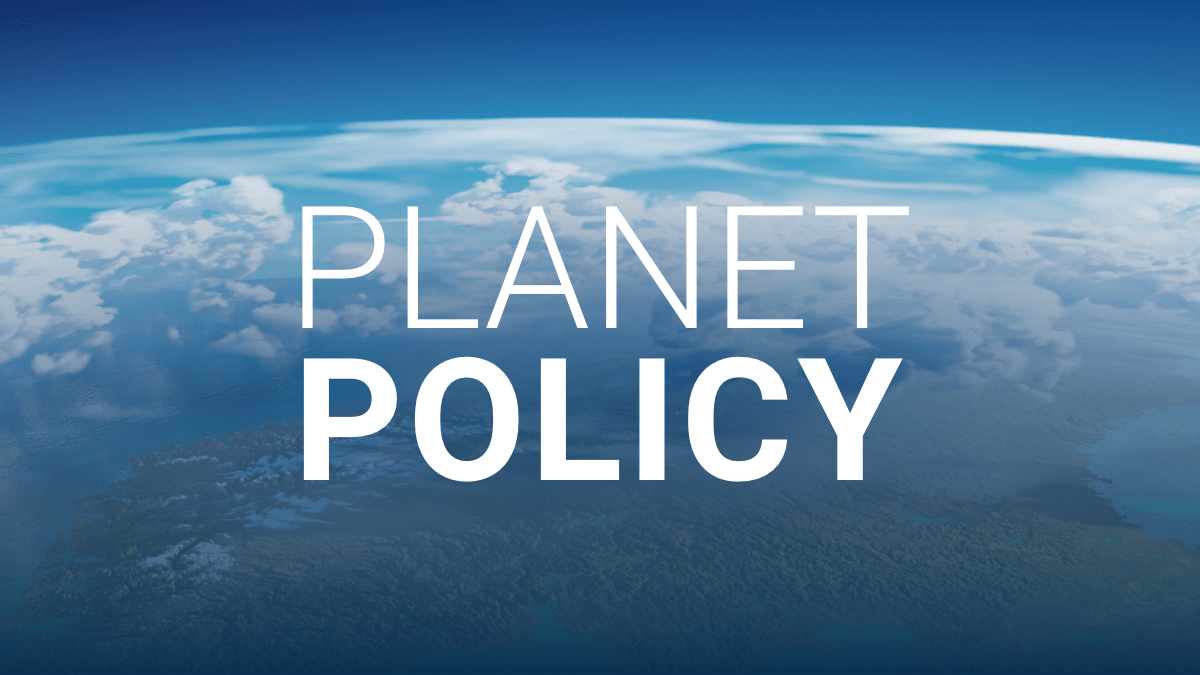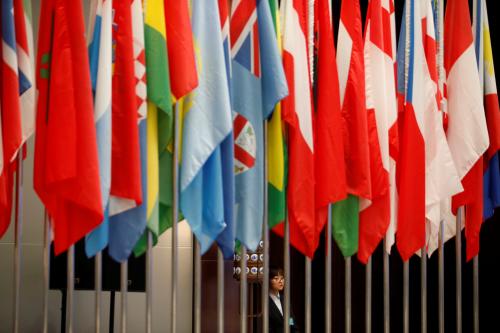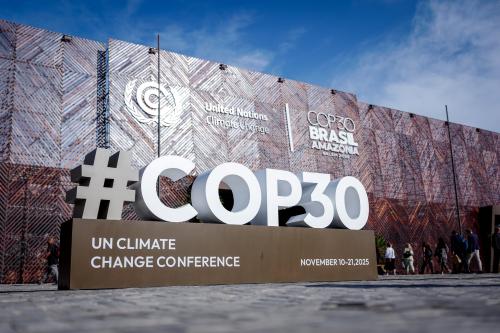 This week in Poland, diplomats are slogging through the details on the “rulebook” that will help finish out the design of the landmark Paris Agreement (learn more here). They need to hurry up. A string of news from the scientific community, including an essay released Wednesday from Nature, suggests that global warming is getting a lot worse, quickly.
This week in Poland, diplomats are slogging through the details on the “rulebook” that will help finish out the design of the landmark Paris Agreement (learn more here). They need to hurry up. A string of news from the scientific community, including an essay released Wednesday from Nature, suggests that global warming is getting a lot worse, quickly.
In the new Nature essay a team of us—Yangyang Xu from Texas A&M, V. Ramanathan from Scripps Institution of Oceanography, and me—took a fresh look at the latest report from the Intergovernmental Panel on Climate Change (IPCC), the official body sanctioned by the United Nations to take a careful look at climate science. A few years ago, in the wake the 2015 Paris Agreement, the IPCC was asked to develop a special report to look at the benefits of stopping warming at 1.5 degrees centigrade above pre-industrial levels. That special report, released in October, showed that such a policy would, indeed, generate huge benefits—compared with a 2-degree limit. This is important because it relates centrally to the ultimate goal of the Paris Agreement. Some favored 2 degrees. Others, especially from the highly vulnerable low-lying island nations, wanted an even stricter limit of 1.5 degrees. The diplomats did what they do best—they found language that let everyone agree even when they don’t agree. And they asked the IPCC to sharpen the debate with some facts. The IPCC delivered in spades, and it warned that the world was on track to pass the 1.5-degree limit by 2040 unless the world acted quickly.
The essence of our team’s new essay is that the IPCC’s warnings, dire as they were, pulled punches. In fact, warming is already accelerating and by our estimate warming is on track to blow through the 1.5 degree level by 2030—a decade before the IPCC estimated—possibly even earlier. The single largest explanator for this faster warming is that emissions remain stubbornly high and keep rising.
We are hardly the only team to warn about accelerating warming. But the core of our argument isn’t just about the dangers of warming—it is also that policymakers and analysts need to get a lot more realistic. The science of climate impacts and policy of climate change are two ships sailing in opposite directions. Even as the scientists warn of big dangers—and extreme events like California’s wildfires make those dangers palpable—the real world efforts to tame emissions are falling short.
Some of this failure simply reflects that politicians and diplomats have set goals that never, practically, could be achieved. Indeed, the weakest part of the new IPCC report is its roadmap for how to cut emissions to stop warming at 1.5 degrees—a roadmap that starts with a large dose of fantasy about how quickly social and technological systems can change course. Governments that advocated for an even more modest limit of 2 degrees have also been engaged in a lot of fantasy—a point that Charlie Kennel and I warned about years ago in Nature.
The new politics of climate change must realize that the world is headed, quickly, into dangerous regimes. That will put a premium on policies that address so-called super-pollutants—that is, potent greenhouse pollutants, such as black carbon (also known as soot) that, when controlled, yield quick responses in the climate. We must grapple, as well, with the reality that emergency measures to “geo-engineer” the climate might be needed—measures that, though flawed, could dampen some of the most horrible effects of climate change. And we must deal with the reality that the world is in for a whole lot of warming—which means that societies must prepare to adapt.
I don’t see much of this changing quickly. Another set of papers published Wednesday, from the Global Carbon Project, shows that world emissions rose last year and are slated to rise again next year. (The trends they are pulsing suggest that emissions will keep rising for the foreseeable future. While Western countries all have modestly declining emissions, growth in the emerging economies is hot.) Politicians aplenty are talking about climate warming, but few are doing much about it—and for a global problem like this, what ultimately matters is whether the whole world economy starts making deep cuts. My Brookings colleague Bruce Jones and I have suggested, in the set piece for a new Brookings series of papers on climate change, that most countries think first about other priorities—like local air pollution and jobs—rather than abstract global goals like a safer climate when they formulate policy. That perspective suggests when you take a step back from all the complexities of climate science that it is facts on the ground that will determine what most countries do. When the technologies to cut emissions get cheaper—some say that moment is arriving quickly, although I remain skeptical—then it will be easier for policymakers to act.
That’s a grim view of the future. It is one that spells a lot more warming. And it is probably realistic.
The Brookings Institution is committed to quality, independence, and impact.
We are supported by a diverse array of funders. In line with our values and policies, each Brookings publication represents the sole views of its author(s).






Commentary
More bad news on the global warming front
December 5, 2018